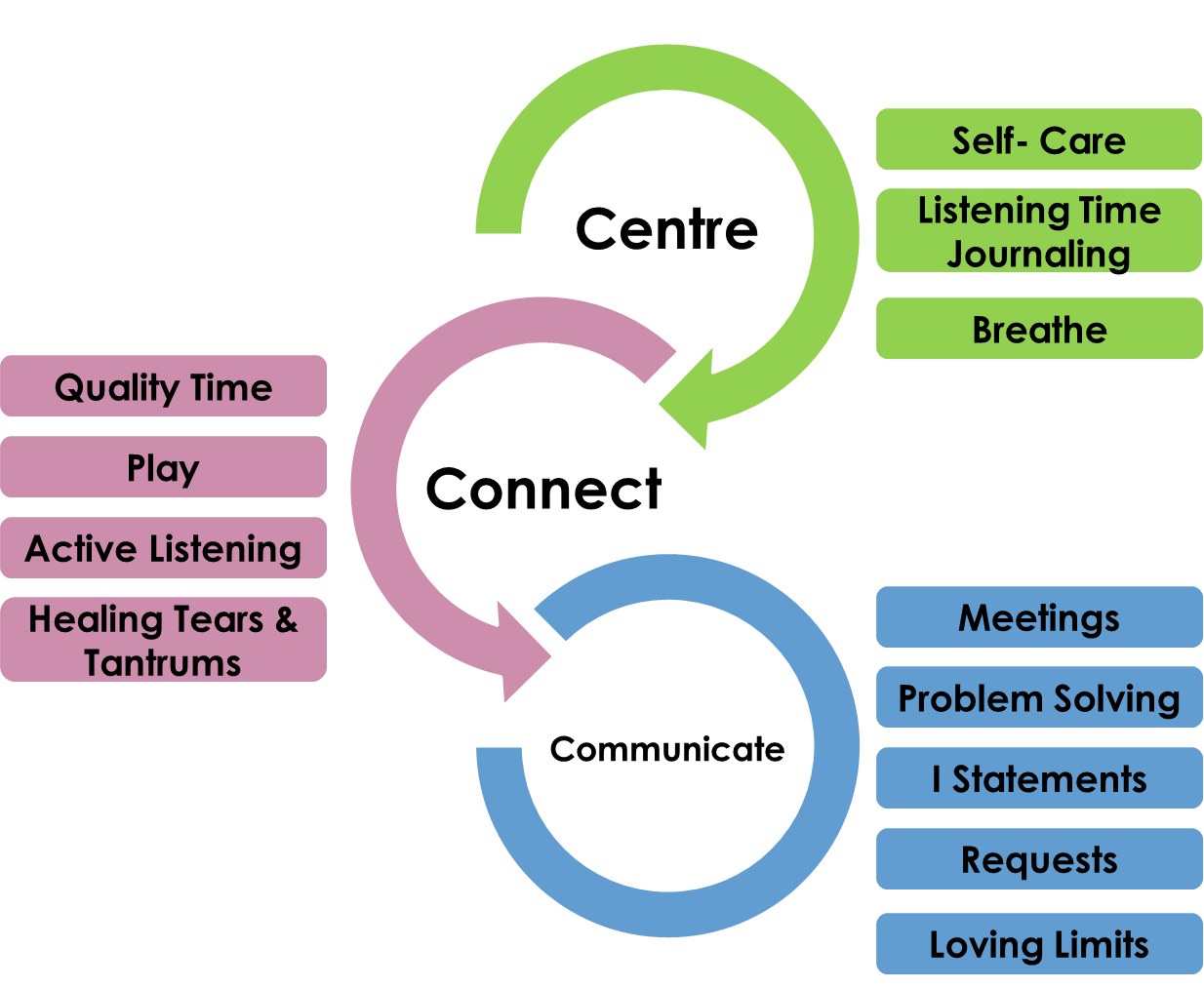The Peaceful Parenting Philosophy

The peaceful parenting approach gives a broader understanding of the dynamics between the parent / educator and the child. To approach parenting challenges in a more constructive way, it’s important for the parent to be aware of (a) what they’re modelling through their responses to their child, (b) the importance of trying to meet the underlying needs that may be driving the behaviour, (c) the skills that the child needs to develop for future situations and (d) that the connection, care and warmth in the relationship is the biggest contributing factor towards a child’s behaviour and needs to be preserved.
The peaceful parenting philosophy that Genevieve teaches equips parents with the tools to transition to a non-punitive connection based parenting approach. It’s based on past and current attachment research and at it’s core is the recognition that to bring about long lasting positive change, parents need to gain a better understanding of what their child needs in their growth and development. A parent gaining a greater awareness of their child’s attachment and developmental needs (when explained in simple enough terms), leads to a greater motivation to learn the parenting tools which hold the value of the parent child relationship at the core.
Genevieve understands that the necessary change needs to happen first and foremost at the emotional level, which is why peaceful parenting puts equal focus on helping parents develop the self-awareness and emotional self-regulation skills needed to change. In supporting parents in their learning, growth and change, Genevieve shares her in depth experience and study of the many and varied tools for self-growth, self-healing, mindfulness and meditative practices.
This contrasts with traditional parenting approaches which often focus on the child’s behaviour in isolation, often using punishment as a strategy for modifying behaviour. Although using punishments, rewards or threats may work in the short term, adopting a punishment-free approach is a key factor in establishing relationships that are based on trust and mutual respect, for creating a healthy team spirit in the family. The Peaceful Parenting approach fosters more willing cooperation, integrity and self-discipline in children (slowly over time as their natural development allows) as opposed to fear based obedience.
Genevieve shifted the focus of her work away from teaching and counselling adults with a wide range of personal challenges (over the previous ten years) to specializing in the field of counselling, coaching and teaching parents. Along with her husband Dan, she founded the Peaceful Parent Institute in New Zealand in 2004, and since that time peaceful parenting has been adopted by parents and professionals around the globe who resonate with this much more respectful and even therapeutic model of parenting.
